Viewpoint: Marikana highlights Zuma's failure to lead
- Published
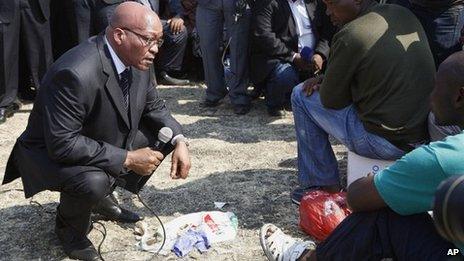
Could Marikana spell serious trouble for President Jacob Zuma?
The decision by South Africa's state prosecutors to provisionally drop murder charges against the Marikana mineworkers has been welcomed with relief, although speculation continues about who took the decision.
No prosecuting authority in its right mind could have instituted murder charges against 270 mineworkers for the recent killing of 34 of their colleagues by police.
This has fuelled speculation that the National Prosecution Authority (NPA) must have been under political influence to institute the charges.
What makes the picture even murkier is the subsequent decision by the NPA to withdraw the charges, before trying out the charges in court.
The Marikana story is not only a tragic incident where mineworkers senselessly lost their lives, but it is also developing into one of the worst cases of bungling by the prosecution since white minority rule ended in 1994.
Marikana has also exposed the clumsiness of the African National Congress (ANC) government, and the fact the lines between party and state are becoming increasingly blurred.
Matter of principle
After lawyers acting for the miners called on President Jacob Zuma to order the withdrawal of the murder charges, he cautiously stated that it was not up to him to instruct the NPA on what to do.
The president was being sensitive to the perception that the NPA is influenced by politicians.
But soon thereafter, the NPA decided to withdraw the charges. The decision to file such serious charges and to then withdraw them will undermine its credibility.
It will make it even more difficult for the NPA to proceed with even lesser charges in this matter.
The question is: Did the president instruct the NPA to drop the charges? Even more interesting, did he instruct the NPA to institute the charges in the first place?
These questions will never be answered. As a matter of principle, the president cannot publicly take credit for the NPA's decision to drop the charges.
Marikana is also playing out at the most sensitive moment within the ANC, as the party is gearing towards its December conference, when it elects its leaders.
The tension within the party has resulted in a situation where individual leaders of the ANC have lambasted the NPA and, by implication, Mr Zuma's leadership.
Government is seen to be accountable for what happened in Marikana, and government officials have to be careful about their public utterances on the issue.
Individual ANC leaders, on the other hand, have spoken egregiously about the issue, often criticising the government.
Political dream come true
In his speech in North West province at the weekend, ANC treasurer general Mathews Phosa criticised the decision to charge the 270 miners with murder.
Mr Phosa pointed to a crisis of legitimacy in South Africa's institutions as the main issue that needed to be discussed.
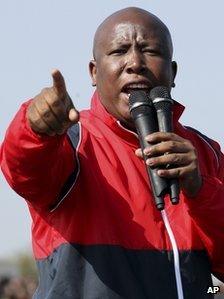
Julius Malema is hoping to capitalise on the Marikana protests
He is a prominent detractor of the Zuma camp in the ongoing tussle for the leadership of the ANC.
But what does this mean for Mr Zuma's political future as party president?
I do not believe the issue jeopardizes his chances of a second term.
I think the political storm is drawing to an end and I do not foresee another backlash.
I think this crisis will only be used by those already attacking Mr Zuma's leadership as further evidence of the need to replace him.
Marikana is also a stage where top ANC members have retreated from their party into civil society groups, and have been criticising party leaders in government.
This has seen alliances of convenience being formed among ANC members as they gang up against individuals serving in government.
For them, Marikana indicates not the declining legitimacy of the ANC but rather the manner in which individuals serving in government have abandoned the party mandate - hence the need to replace them.
For disgruntled and expelled ANC members such as former youth leader Julius Malema, Marikana is a political dream come true.
The crisis demonstrates yet another example of failure by Mr Zuma to lead.
Entangled
Mr Malema did stumble onto the truth about Marikana, particularly when it comes to the pact between trade unions, business, and ANC elites.
The fact that former trade unionist Cyril Ramaphosa, who is also a member of the top leadership body, the National Executive Committee, sits on the Lonmin board indicates that the problem is deeper than it seems.
What this says is that, unions such as the National Union of Mineworkers (NUM), which is affiliated to the ANC-allied Congress of South African Trade Unions (Cosatu), is so entangled in politics that it is losing its credibility as a representative of workers.
NUM negotiated the pay settlement that has been brought into dispute in Marikana by the rival Association of Mineworkers and Construction Union (Amcu).
While more regarding this complex relationship is yet to come into the open through the commission of enquiry appointed by Mr Zuma, Amcu's rise to prominence in Marikana and other platinum mines has been fed by growing uneasiness among with workers with NUM's status as a credible representative of their interests in the sector.
The union environment in the mining sector is shifting. The mining bosses, who have an interest in ensuring a "friendly" NUM leadership, have also closely observed the union's influence in the sector.
The complex socio-political environment in which the mining sector operates in South Africa needs to be looked at deeply, to ensure that another Marikana does not happen.
To dismiss Marikana as an exception would be too costly for South Africa.
- Published24 August 2012
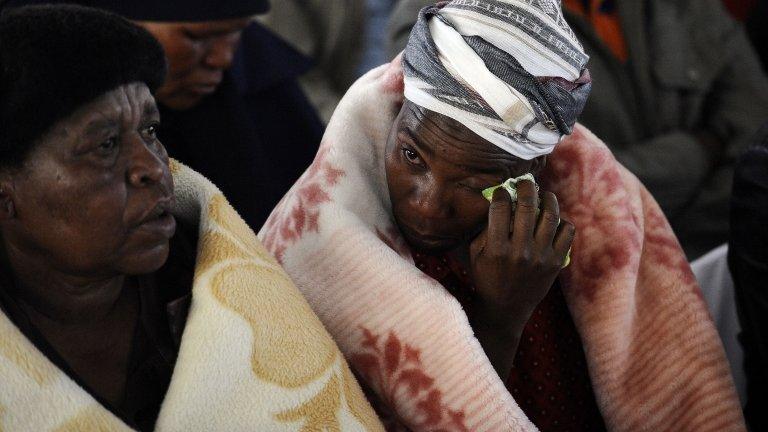
- Published23 August 2012
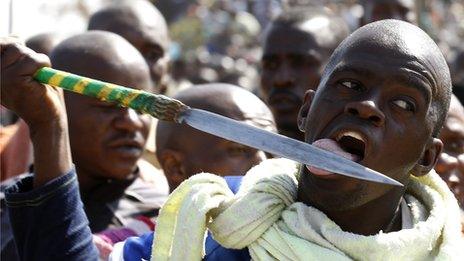
- Published6 April 2018
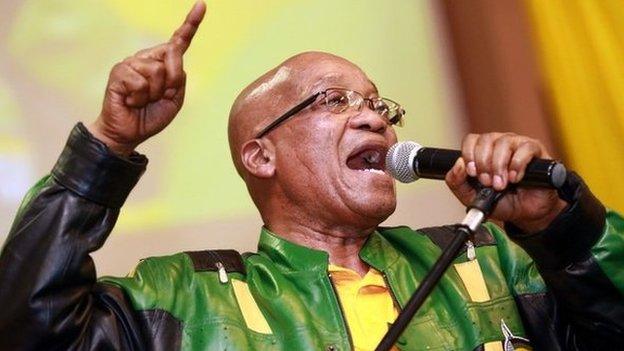
- Published8 May 2024
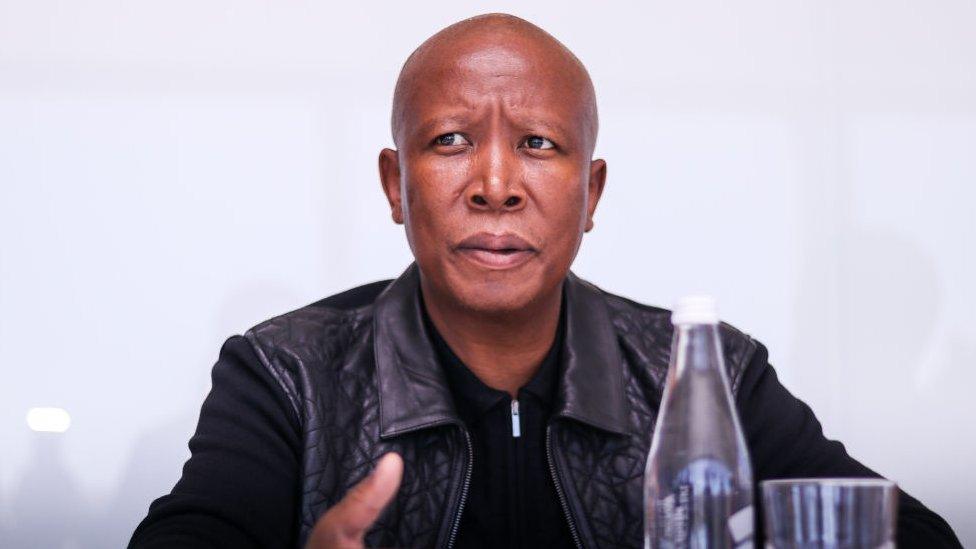
- Published9 July 2024
